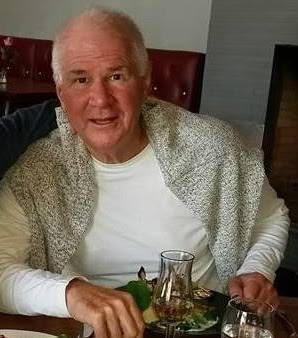Dying man cross-examined in euthanasia case
Ministers oppose bid to change the law
Diethelm Harck was cross examined in Tuesday for an upcoming case on the right-to-die. Photo supplied
A “crusader” for euthanasia who has been influenced by his palliative care doctor and co-litigator in a legal bid to legalise euthanasia in South Africa, is how Advocate Vas Soni, representing the ministers of Health and of Justice and the National Director of Public Prosecutions, who are all opposing the bid, characterised Diethelm Harck and Dr Suzanne Walterby.
Harck, who is afflicted with Motor Neuron Disease (MND), and Walter, who has multiple myeloma, have been giving evidence on commission before retired Judge Neels Claasen to be used when the matter goes to court.
Harck and Dr Walter are seeking to develop the common law to decriminalise both physician-assisted suicide (where the doctor prescribes and the patient self-administers) and physician-assisted euthanasia (where the doctor administers any medicine to end life).
Cross-examining Harck on Tuesday, Soni suggested that he might not have been properly diagnosed. He said the last time Harck had had tests was in 2013, and the diagnosis had been “presumptive MND” with a recommendation that he had further testing. This had not been done.
Soni said the defendants’ own palliative care expert, Baroness Ilora Findlay would testify about the importance of an accurate diagnosis. She would also testify that the attitude of the doctor treating terminally ill patients had a profound influence on the patient and how he or she perceived what lay ahead.
Harck started seeing Dr Walter in Johannesburg in 2016 and only stopped seeing her in 2018 when he moved to the Western Cape.
Findlay said most pro-euthanasia campaigns were conducted by people with “ strong personalities” who were emotionally vulnerable and feared a lack of care.
Hack responded: “I can concur that I have a strong personality. I do feel emotional and physically and psychologically vulnerable.
“I do feel the appropriate levels of support are missing. And those are medical assisted suicide and physician-assisted euthanasia.”
He denied being a crusader, saying: “I do believe the choice of death to be an individual and personal matter.”
Referring to the many different cultures and economic realities in South Africa, Soni said Harck was not seeking an exception to the law, but wanted to change the law for everybody. “And that is why the court has to take a wider perspective and not just the perspective of a particular group of people.”
Advocate Adrian D’Oliveira, for the Health Professionals Council of South Africa, which is also opposing the application, said he accepted Harck’s diagnosis, but he noted that it had been eight years since the diagnosis was made. Life expectancy with MND was usually two to three years.
Harck agreed that the disease’s progression had “thankfully” been gradual.
D’Oliveira said, just as when a patient is put under general anaesthetic, it is possible for experienced medical doctors, in the context of palliative care, to sedate patients similarly.
Harck said he agreed, but he had witnessed a dying person screaming in pain whilst heavily sedated.
D’Oliveira said it was possible that the patient had not been properly sedated.
“You have a legitimate fear of reaching a point where you fear living and being in that conscious place where you are unable to die,” said D’Oliveira. “But medical doctors at the moment can make you unconscious so you don’t have to experience anything. You will feel no pain. There is no need for the law to change to accommodate your needs to get out of that trap.”
Harck said, “In my opinion, the human right to live is tied down with the human right to die.”
The advocate said even in countries which permitted euthanasia, patients were rendered unconscious before they died “which is exactly the way it ends for someone who is terminally sedated.”
He said it was also possible to “call time” and ask for life-supporting oxygen machines to be removed, ask for sedation and die peacefully.
Harck said, “I understand the process. I don’t know if it’s peaceful”.
Support independent journalism
Donate using Payfast

Don't miss out on the latest news
We respect your privacy, and promise we won't spam you.
© 2021 GroundUp. This article is licensed under a Creative Commons Attribution-NoDerivatives 4.0 International License.
You may republish this article, so long as you credit the authors and GroundUp, and do not change the text. Please include a link back to the original article.
We put an invisible pixel in the article so that we can count traffic to republishers. All analytics tools are solely on our servers. We do not give our logs to any third party. Logs are deleted after two weeks. We do not use any IP address identifying information except to count regional traffic. We are solely interested in counting hits, not tracking users. If you republish, please do not delete the invisible pixel.

